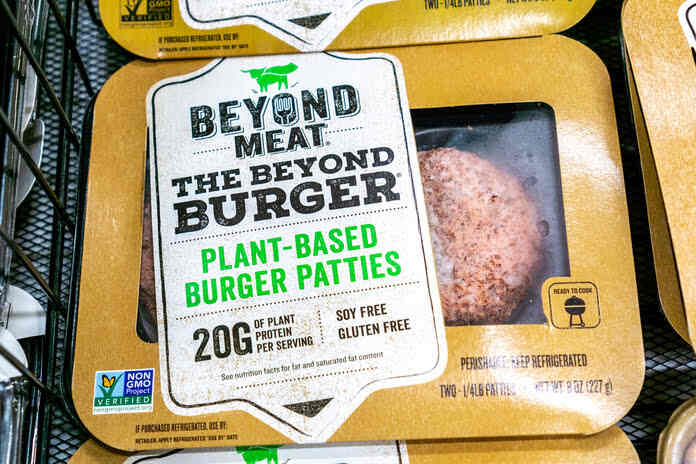As the company confronts operational challenges and low margins, Beyond Meat (NASDAQ:BYND) revealed fiscal second-quarter earnings that fell short of expectations
After-hours trading saw a decline in the price of Beyond Meat, with shares falling as much as 6%.
According to Bloomberg’s report, these are Beyond Meat’s second quarter results in comparison to Wall Street consensus forecasts:
- Revenue: $147 million versus the anticipated $149 million
- Adjusted profit/loss per share was $1.53 as opposed to $1.19 projected
Wider Than Expected Shortfall
Similar to the first quarter, Beyond Meat reported a wider-than-expected loss due to margin pressure from the company’s plant-based jerky, which was developed in collaboration with PepsiCo (NASDAQ:PEP). The company attributed the impact of sales to liquidation channels, as well as adverse effects of foreign exchange and elevated discounts, for their revenue shortfall.
Beyond Meat announced that 4% of their global workforce would be eliminated. According to a business internal memo published by Bloomberg, the company removed approximately 40 employees ahead of earnings as part of a larger cost-cutting strategy.
In the second quarter, gross profit was a loss of $6.2 million, or a gross margin of -4.2 percent of net revenues. The company reported a gross profit of $47.4 million, or a gross margin of 31.7 percent of net revenues, in the same period a year prior.
The business revised its forecast for the entire year 2022, stating that net revenues are anticipated to be in the range of $470 million and $520 million, up 1% to 12% from 2021. This contrasts with earlier projections of $560 million to $620 million.
Macroeconomic Challenges a Big Factor in Losses
The leadership team of Beyond Meat (NASDAQ:BYND) observed that, in addition to COVID-19 and supply chain interruptions, the near-term uncertainty around macroeconomic challenges, such as inflation and rising interest rates, continues to have an impact on its operational environment.
The company stated during the conference call that it expects the post-COVID recovery in growth to be delayed and that consumers’ shopping habits have switched away from plant-based meat and toward lower prices.
Until the company makes more progress in controlling operating expenses, analysts generally anticipate that Beyond Meat’s sales and earnings will remain erratic.
The manufacturer of plant-based beef has had difficulty maintaining its original rate of expansion, with shares falling more than 70% over the last 12 months.
As food-service income continues to lag behind retail, investors will seek more information on scalability and the possibility of specific restaurant partnerships, such as the deployment of McDonald’s McPlant.
Future Still Bright … For the Industry
The future of plant-based food alternatives is still promising, though, as the market places a strong emphasis on innovation while also raising output, cutting costs, and modifying recipes to suit customer tastes.
Over the past few years, competition in the plant-based industry has surged, with items made from fungi to lab-grown meat. Some of Beyond Meat’s recent difficulties have been significantly influenced by the heightened competition.
By 2031, it is anticipated that the global retail sales of the plant-based category would reach $166 billion, or 10.6 percent of the anticipated $2.2 trillion protein industry.
Featured Image: Megapixl @Andreistanescu

















